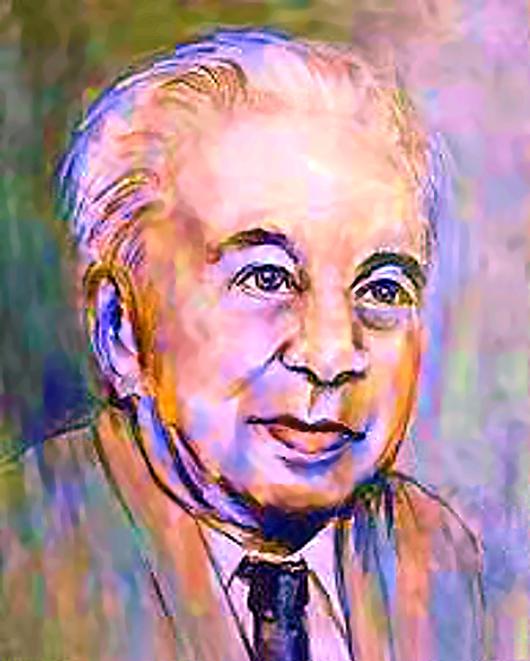Exhibition "All the Beauties in the World" (Všecky krásy světa)
23.08.2017 / 07:39
Embassy of the Czech Republic, Indo-Czech Friendship Association and Gandhi Smriti and Darshan Samiti is organizing an exhibition "All the Beauties in the World" devoted to Jaroslav Seifert, Czech poet, writer, journalist and the only Czech Nobel Prize winner for literature. Inauguration of the exhibition is planned for September 11th, 2017 at 6.00 pm at Gandhi Smriti, Gate no: 2. The exhibition will be inaugurated by the Minister of Culture of the Czech Republic Mr. Daniel Herman and will be upto September 19th, 2017.

Jaroslav Seifert is widely considered to be the national poet of the Czech Republic as well as one of the foremost Czech literary figures of the 20th century. Respected for his courage and integrity in the face of the political repressions of both the Nazi and the Communist eras, Seifert was a prolific author, publishing more than thirty volumes of poetry over a span of sixty years. His verse, thought to embody the spirit of the Czechoslovakian people, is infused with Czech history, literature, and culture, and frequently pays homage to Seifert's hometown, the capital city of Prague. Seifert is considered a major influence by many contemporary Czech literary figures and, during his lifetime, was revered throughout the country as a symbol of national identity.
Jaroslav Seifert was born in Prague on September 23rd, 1901 when Czech Republic was still part of the Austrian-Hungarian Empire. After the Czechoslovakia's independence in 1918 he started to work as a journalist and writer. His first books of poem was published in 1921 after which he became famous among Prague intellectuals. He was considered as the leading representative of the avant-garde movement, thanks to his fresh, sensual and innovative poetry.
Jaroslav Seifert was an editor of many Czech newspapers and magazines. He also actively participated in the artistic community and also in the political life of the country. But because of voicing his opposing views he was expelled from Communist Party of Czechoslovakia in 1929. However, after the release of the regime in the 1960s, when his wonderful productions were re-printed, he got many Czech and international awards and in 1966 he was even appointed by the title "National Artist".
He was Chairman of the Czechoslovak Writer's Union for several years (1968–70). In 1977 he was one of the signatories of Charter 77 which criticized the Government for failing to implement human rights provisions of a number of documents it had signed. His poetry became famous not only in Czechoslovakia but also in many other countries. The Government ban on Seifert's work was lifted in 1981, and three years later in 1984 the poet was awarded the Nobel Prize for Literature. Seifert died in Prague in 1986.
Seifert's poetic representations of Prague and Czechoslovakia have been regarded as important celebrations of the nation's cultural heritage. Perhaps the highest praise accorded Seifert was found in his Nobel Prize citation, which honoured him for work "which, endowed with freshness, sensuality, and rich inventiveness, provides a liberating image of the indomitable spirit and versatility of man."
For more information about the event please write to newdelhi@embassy.mzv.cz




